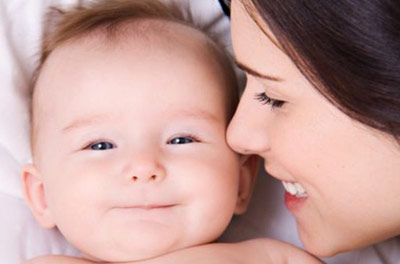|
 The fashion for having children later in life could lead to women becoming more fertile in their 40s and beyond, scientists have suggested. |
|
The fashion for having children later in life could lead to women becoming more fertile in their 40s and beyond, scientists have suggested. As many women wait until they are older to give birth, only those with longer lasting fertility genes will be successful. That means the average length of fertility will grow as their genes will be passed on to their children. The study from the University of Sheffield shows that previously women would marry early and if widowed were too old to remarry thus favouring early childbirth in women. But today's reluctance to settle down and reproduce until later in life could lead to fertility beginning to favour older women. The researchers studied marriage patterns to trace the survival and marriage histories of 1,591 women. Using 18th and 19th century Finnish records – a time when almost everyone got married and divorce was strictly forbidden. They found that women aged 30 to 35 were the most likely to be married. Those that wed wealthy husbands were married at a younger age but to relatively older men, meaning family sizes were bigger but with an increased risk of widowhood. The researchers say that this high chance of widowhood, coupled with low remarriage prospects for older widows with children, limited the percentage of women in the population with the opportunity to reproduce at older ages. Duncan Gillespie, from the university's Department of Animal and Plant Sciences said that in today's society however, women do not start childbearing until an older age as marriage is often delayed. He said: "As a result of this, the natural selection maintaining young-age fertility might weaken and the relative strength of natural selection on old-age fertility could increase, something that could potentially lead to improvements in old-age fertility over many generations.” (Read by Nelly Min. Nelly Min is a journalist at the China Daily Web site.) (Agencies) |
科學家指出,現(xiàn)在的晚育趨勢將讓未來女性40歲以后的生育能力增強。 許多女性會等到年齡很大時才生育,而只有那些帶有更持久的繁殖基因的女性才會成功晚育。 這意味著生育能力持續(xù)的平均時間會隨著她們的基因遺傳給下一代而變長。 謝菲爾德大學的研究顯示,以往女性會早早結婚,如果丈夫死了,她們也會因為年紀太大而無法再嫁,因此以前的女性會更多地早育。 不過現(xiàn)在的女性都不愿意早早安定下來,想晚一點再生育,這會使年紀較大的女性的生育能力也開始增強。 研究者追蹤調查了1591位女性的生命史和婚史,研究了她們的婚姻模式。 研究數(shù)據(jù)來自19世紀和20世紀期間芬蘭人的記錄,在這個年代幾乎所有人都結婚,離婚是被嚴格禁止的。 他們發(fā)現(xiàn)年齡在30歲到35歲之間的女性最有可能結婚。那些嫁給有錢人的女性結婚時間更早,不過丈夫的年紀相對較大,這意味著家庭人數(shù)更多,但是成為寡婦的幾率也增加了。 研究者說女性成為寡婦的高幾率,加上帶著孩子的高齡寡婦再婚可能性很低,這使高齡產(chǎn)婦在人口中所占的比例受到限制。 來自謝菲爾德大學的動植物科學系的鄧肯?吉萊斯皮說,然而,在今天的社會,因為結婚時間通常被推遲,所以女性到年紀較大時才生育。 他說:“因此,年輕生育的自然選擇規(guī)律會減弱,而高齡生育的自然選擇規(guī)律則會相對增強,這可能會導致未來很多代人的高齡生育能力增強。” 相關閱讀 (中國日報網(wǎng)英語點津 陳丹妮) |
